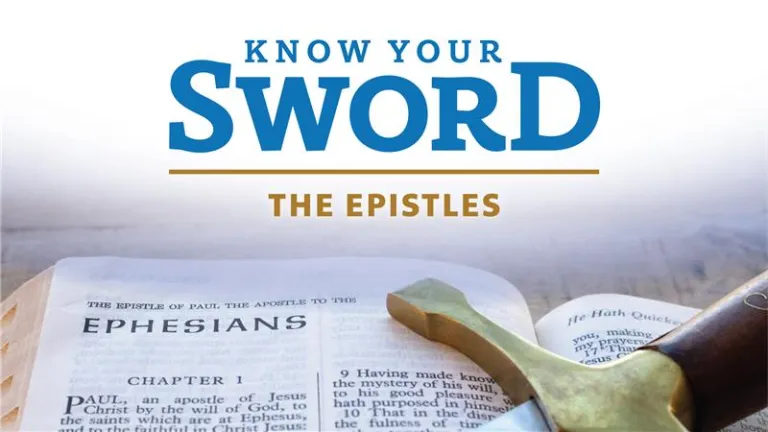Ephesians Part 04

Paul shares his prayer for the people of Ephesus, setting an example for us, as we are all members of the Body of Christ and can pray for each other.
After explaining the glory of redemption and adoption through Christ, Paul turns his thoughts toward the brethren in Ephesus with deep affection and gratitude. In Ephesians 1:15 he writes,
“Therefore I also, after I heard of your faith in the Lord Jesus and your love for all the saints, do not cease to give thanks for you, making mention of you in my prayers.”
This was not a distant or formal relationship—Paul’s connection with the Ephesians was heartfelt and personal. Acts 20:36 records that when Paul parted from the elders of the Ephesian church, they wept together and prayed, showing the closeness of their fellowship. His prayer for them is filled with spiritual longing: that they would grow in wisdom, understanding and knowledge of God.
Paul prays that God would grant them “the spirit of wisdom and revelation in the knowledge of Him,” and that the eyes of their understanding would be opened to perceive spiritual truth. This reminds us that true knowledge comes only when God opens our minds and hearts. Human intellect alone cannot grasp the mysteries of His purpose—it is the Spirit of God that enlightens our understanding. Paul desires that the Ephesians might know “the riches of the glory of His inheritance in the saints” and “the exceeding greatness of His power toward us who believe.” That power, Paul says, is the same power that raised Christ from the dead.
Paul begins chapter 2 with a reminder of what God has done for us:
“And you He made alive, who were dead in trespasses and sins.”
Once we lived according to the course of this world, enslaved to its influences and deceived by the “prince of the power of the air.” Through baptism and the receiving of the Holy Spirit, however, we are made alive again—spiritually resurrected through God’s power. All of us once walked in darkness, some straying even after knowing the truth, taking another “lap around the track,” as Paul might say, before returning to the light.
The “prince of the power of the air” refers to Satan, whose influence permeates this world, especially through media and culture, appealing to the “lust of the flesh, the lust of the eyes, and the pride of life” (1 John 2:16). He plays upon human weakness, but through God’s Spirit we can replace that destructive influence with divine guidance. The mercy of God makes this possible. Our faith, the ability to believe, is not from ourselves but a gift from Him. We rely totally on His provision and Spirit. Like ancient Israel in the wilderness, who received food, water and protection from God, we too live by His mercy, not by our own effort or worthiness.
Paul emphasizes that salvation is not something we can earn. It is not the result of our good work or personal achievement. Job learned this lesson firsthand when he realized that all his righteousness was nothing apart from God’s grace. Instead, we are God’s workmanship—His creation in progress. We are in the process of becoming spiritually formed for good work, both in this life and the life to come. Our destiny is to bear the image of Christ Himself.
We are being created spiritually, not physically, in the likeness of our Savior. John affirms this in 1 John 3:2:
“Beloved, now we are children of God; and it has not yet been revealed what we shall be, but we know that when He is revealed, we shall be like Him.”
The transformation God is working in us is not self-generated. The idea of a “self-made man” is a myth—no one creates themselves. As Benjamin Franklin once observed, even his rise from humble beginnings was possible only through divine providence. Our spiritual development is entirely God’s doing, as He shapes us into the image of His Son.
We are His workmanship—God’s ongoing creation. Each believer is a living testimony of His power to transform. What began with resurrection power in Christ continues in us as He reshapes our minds, renews our hearts, and prepares us for eternal life. The same God who spoke worlds into existence is now creating in us His divine nature. We are the work of His hands, designed for good works that reflect His glory both now and forever.
UYA Team | uya@ucg.org
United Young Adults (UYA) primarily serves the 18–32-year age group for the United Church of God. There are three main areas of contribution to the lives of the young adults: Promoting Spiritual Growth, Developing Meaningful Relationships and Making the Most of Your Talents. The Know Your Sword series is a daily expository message introducing God’s Word from a trusted perspective.


